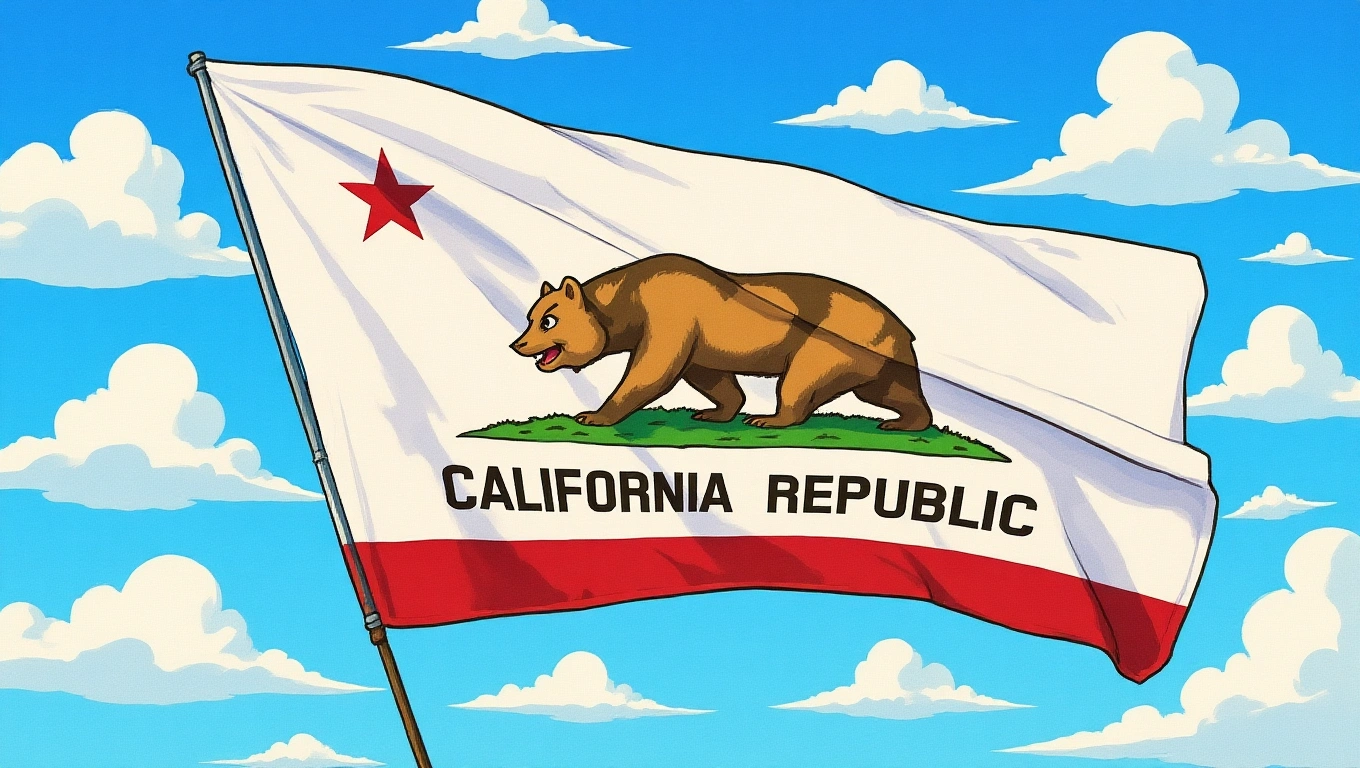Is California’s Independence Possible? AI Predictions on Future U.S. Political Movements
- AI Predict
- US
- California
California Republic Flag in Ghibli Style Created by Dreamface
California, the U.S.’s most populous state and fifth-largest economy, has seen periodic calls for independence. This article evaluates the feasibility of California seceding, analyzing legal, economic, and political factors.
This analysis is generated by Grok, created by xAI, using available data and trends to provide a reasoned prediction.
Predictive Analysis
California’s independence is highly unlikely due to constitutional, economic, and political barriers. The U.S. Constitution (Article IV) requires Congressional approval for secession, which is politically untenable. The 1869 Supreme Court case Texas v. White ruled secession unconstitutional without federal consent. California’s $3.6 trillion GDP (2024) makes it a global economic powerhouse, but it relies on federal funding ($100 billion annually) and trade.
Public support is low: a 2024 YouGov poll shows only 15% of Californians favor secession, despite frustrations with federal policies. X posts from 2025 reflect niche “Calexit” sentiment but no mainstream traction. Trump’s 2025 policies, like tariffs and deregulation, may strain California’s tech sector (25% of state GDP), but its integration with U.S. markets (e.g., 50% of U.S. venture capital) discourages separation. Historical secession attempts, like Catalonia’s, show global resistance to unilateral moves.
Conclusion: California’s independence has a <5% chance by 2030, blocked by legal barriers, economic interdependence, and weak public support.

What Countries Could Be Involved in World War III? AI Analysis of Geopolitical Risks
Jul 15, 2025
AI Style Generation: An In-Depth Comparison of Dream Image and GPT-4o
Jul 15, 2025
AI Background Replacement: An In-Depth Comparison of Dream Image and GPT-4o
Jul 14, 2025Historical Period Prompts: Dream Image vs. GPT-4o
Jul 14, 2025

What Countries Could Be Involved in World War III? AI Analysis of Geopolitical Risks
Fears of a global conflict, often termed World War III, stem from rising tensions among major powers. This article analyzes which countries could be involved, focusing on current alliances, conflicts, and geopolitical flashpoints.
By Landon 一 Jul 14, 2025- AI Predict
- US
- World War III

Will North and South Korea Go to War Again?
Tensions between North and South Korea persist, with North Korea’s nuclear ambitions and South Korea’s U.S.-backed defenses fueling concerns. This article predicts the likelihood of renewed war, analyzing military, diplomatic, and economic factors.
By Landon 一 Jul 14, 2025- AI Predict
- South Korea
- North Korea

How Can Peace Be Achieved in the Middle East?
The Middle East remains a region of complex conflicts, including the Israeli-Palestinian issue, Iran-Saudi rivalry, and ongoing insurgencies. This article explores pathways to peace, analyzing diplomatic, economic, and social strategies.
By Landon 一 Jul 14, 2025- Middle East
- War
- AI Predict
- X
- Youtube
- Discord
